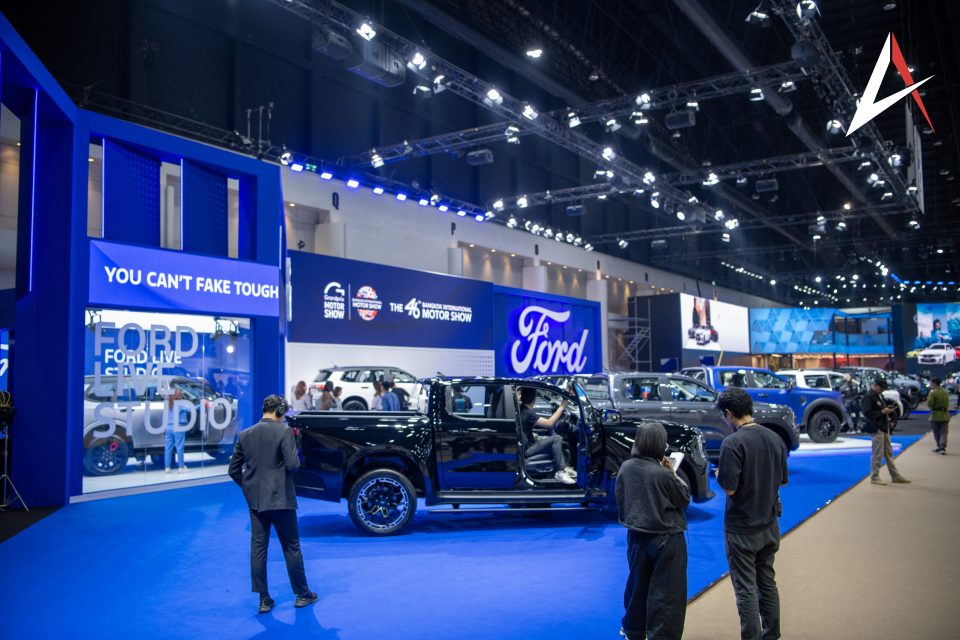U.S. automakers and their international counterparts are grappling with the implications of President Donald Trump’s announcement to impose a 25% tariff on all vehicles and numerous foreign-made auto parts imported into the United States.
If sustained over an extended period, these new tariffs could increase the average cost of a vehicle purchase in the U.S. by thousands of dollars and disrupt car production across North America. This disruption is largely due to the closely integrated manufacturing operations that carmakers have developed over the past three decades across Canada, Mexico, and the U.S.
According to research by GlobalData, nearly half of all cars sold in the U.S. last year were imported. In 2024, Thailand exported 42,000 passenger cars to the United States and approximately $4 billion worth of auto parts. Producers have been warned to prepare for potential challenges as the new tariffs come into effect.
The proclamation signed by Trump is an expansion of a trade war aimed at increasing manufacturing jobs in the U.S. and may set the stage for broader tariffs to be announced next week.
“We’re going to charge countries for doing business in our country and taking our jobs, taking our wealth, taking a lot of things that they’ve been taking over the years,” Trump stated during his address at the White House on Wednesday.
The automobile tariffs are set to take effect starting at 12:01 AM Washington time on April 3. The White House has indicated that these tariffs will apply not only to fully assembled vehicles but also to critical parts, including engines, transmissions, powertrain components, and electrical parts. Tariffs on parts will be enforced by May 3 at the latest, and the list may expand to include additional items over time.
Importers bringing vehicles in under the US-Mexico-Canada Agreement (USMCA) will have the opportunity to certify U.S.-made content, enabling only non-U.S. content to be taxed, according to the White House.
Trump characterized the tariffs as “permanent” and expressed disinterest in negotiating exceptions. Following his announcement, shares of General Motors plummeted 8%, while Ford and Stellantis fell 4.5% in after-hours trading. Asian manufacturers, particularly Toyota, experienced declines of 3-4% in early trading on Thursday.
Despite Tesla manufacturing all the cars sold in the U.S. domestically, though with some imported parts, shares dipped by 1.3%. Trump suggested these tariffs could have a neutral or even positive effect for Tesla, adding that CEO Elon Musk, a close ally, had not influenced his stance on the auto tariffs.
In a post on X, Musk acknowledged the tariffs’ impact on Tesla. “This will affect the price of parts in Tesla cars that come from other countries,” he noted. “The cost impact is not trivial.”
Since Trump returned to the White House in January, his tariffs and related threats have caused uncertainty for businesses and disrupted global markets. He reiterated on Wednesday that he anticipates these auto tariffs will lead companies to increase investments in the U.S. rather than in Canada or Mexico.
Autos Drive America, a coalition representing major foreign automakers such as Honda, Hyundai, Toyota, and Volkswagen, contended that “the tariffs imposed today will make it more expensive to produce and sell cars in the United States, ultimately resulting in higher prices, fewer choices for consumers, and a reduction of manufacturing jobs in the U.S.”
Automakers in North America have largely enjoyed free trade status since 1994. The USMCA, introduced by Trump in 2020, aimed to encourage regional content production through new rules.
Following the implementation of 25% tariffs on Mexico and Canada in early March, Trump granted a one-month reprieve for vehicles that complied with USMCA standards, benefiting American companies. However, the new rules do not extend this reprieve.
“Companies that have invested hundreds of millions and billions of dollars in plants in Canada and Mexico are likely to see their profits significantly decrease over the next few quarters, if not extending into the next couple of years,” warned Sam Fiorani, an analyst at AutoForecast Solutions. “We will need to adjust our sales and production forecasts because this will throw everything into chaos.”
Prior to the announcement of the new tariffs, Cox Automotive, an automotive services provider, anticipated that they would add $3,000 to the cost of a U.S.-made vehicle and $6,000 to the cost of vehicles made in Canada or Mexico without any exemptions.
If the tariffs are enforced, Cox predicts disruption to “virtually all” North American vehicle production by mid-April, resulting in a decrease of 20,000 vehicles per day, equivalent to roughly a 30% reduction in output.
The United Auto Workers union, representing factory workers at the Big Three Detroit automakers, praised Trump’s actions.
“With these tariffs, thousands of good-paying blue-collar auto jobs could be revived in working-class communities across the United





